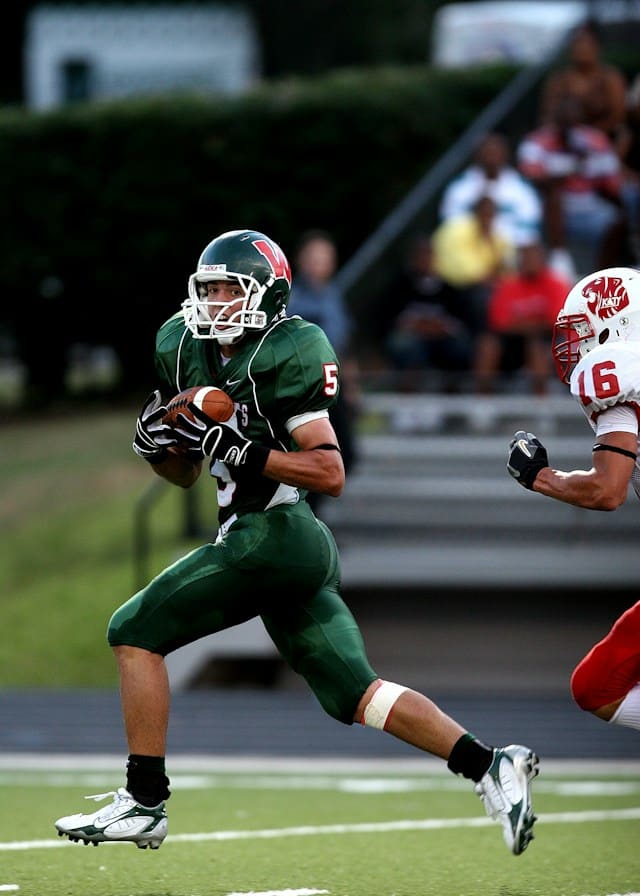If you’re reading this, chances are you’re either an athlete or associated with an athlete who has to juggle the demands of their sport with academic commitments. This balancing act can be challenging, but with the right strategies and support, it is not only feasible but also rewarding. As we delve into this issue, we’ll explore the role of coaches, the importance of stress management, and the unique situations faced by athlete scholars at different levels, from university students to elite athletes. So, let’s get started!
The Crucial Role of Coaches in Athlete Scholars’ lives
Coaches are pivotal figures in the lives of athletes. They not only teach techniques and strategies of the sport but also play a significant role in shaping the athlete’s mindset and approach towards training and competition.
A lire en complément : What are the psychological impacts of career-ending injuries on professional athletes?
Athletes, especially those attending university or striving to reach elite level, often face the daunting task of balancing their rigorous training schedules with their academic responsibilities. Here, a coach can provide essential support by understanding the athlete’s academic commitments and helping to design a training regimen that accommodates them.
Coaches can also assist in developing time management skills. It’s one thing to have a schedule, but quite another to stick to it, and coaches can guide athletes in this area. Moreover, coaches can be a source of emotional support, helping athletes navigate the stress that inevitably comes with such a demanding schedule.
Sujet a lire : What Strategies Can Enhance Team Cohesion in Individualistic Sports like Tennis or Golf?
Managing Stress: A Key Aspect of the Athlete Scholar’s Journey
One cannot discuss athletics and academics without addressing stress. Stress is a part of every athlete’s life. Intense training sessions, high-stakes competitions, balancing sports with studies – all these elements can contribute to a stressful existence.
Tackling stress effectively is crucial for athlete scholars. A certain level of stress can boost performance, but too much can be debilitating. It’s essential to recognize the signs of excessive stress, such as changes in sleep patterns, loss of appetite, or decreased interest in activities previously enjoyed.
Soccer players, for instance, often engage in mindfulness techniques to manage stress. These can include deep-breathing exercises, meditation, or even just taking a few moments to sit quietly and focus on the present. It’s about finding what works best for the individual athlete, and it’s crucial not to overlook the importance of relaxation and downtime.
The Unique Challenges and Support for University Athlete Scholars
Every athlete scholar’s journey is unique, but university students face some specific challenges. The academic pressure at the university level is high, and athletes must also cope with the demands of their sport.
Many universities offer academic support for athlete scholars. This can take the form of tutoring services, study workshops, and flexibility with assignment deadlines and exam schedules, particularly around competition times.
University athletes should take advantage of these services. They can also seek support from academic advisors who can guide them in course selection and study strategies that suit their training schedules.
The Balancing Act of Elite Athletes Pursuing Academics
Elite athletes represent the highest level in sports. They train intensively and frequently compete internationally, leaving little time for academics. However, many still pursue educational qualifications, recognizing the importance of having a backup plan and a life after sports.
For these athletes, flexibility is crucial. Online courses offer a way to fit studies around training and competition schedules. Universities and educational institutions that offer distance learning or flexible study options can be a lifeline for elite athletes.
Though challenging, it’s important to remember that being an elite athlete and a student is not impossible. Many have done it before, and with the right support, dedication, and planning, you can do it too.
Google and Other Tech Tools: Aiding Athlete Scholars in Their Journey
In this digital age, technology can be a game-changer for athlete scholars. Google, for instance, has several tools that can help manage academic duties. Google Calendar can be used to keep track of training, games, classes, and assignment deadlines. Google Docs and Google Drive are excellent for note-taking, collaboration on group projects, and storing documents online for easy access.
Apps for time management, study aids, and stress relief can also be beneficial. For example, Pomodoro timers can break study sessions into manageable chunks, flashcard apps can aid in memorization, and guided meditation apps can help with relaxation and stress management.
Remember, these tools are meant to aid you, not to create additional stress. Make time to learn how to use them effectively, then let them simplify your life as you balance your athletic pursuits with academic responsibilities. Balancing athletics and academics is not an easy task, but with the right strategies and support, it is entirely possible—and the rewards can last a lifetime.
Google Scholar and CrossRef: Resources for Athlete Scholars
In the age of digitalization, online resources have proven to be invaluable for students worldwide. For athlete scholars, these online platforms can be a game changer, providing a wealth of information right at their fingertips. Two such platforms are Google Scholar and CrossRef.
Google Scholar is a freely accessible search engine that indexes scholarly literature across various disciplines. It provides a convenient way for student athletes to conduct academic research without having to physically visit a library. It indexes a wide variety of sources, including articles, theses, books, and conference papers, and is an effective tool for both undergraduate and postgraduate study.
On the other hand, CrossRef is a digital hub that stores metadata for scholarly content. It is especially known for its DOI (Digital Object Identifier) system, which provides unique and persistent identifiers for digital objects such as research papers. Athlete scholars can use CrossRef to easily locate and cite scholarly content in their academic work, enhancing the quality and credibility of their research.
However, it is crucial to remember that while Google Scholar and CrossRef can be helpful, they are not a substitute for proper academic guidance. Athlete scholars should still consult with their academic advisors, tutors, or professors to ensure the quality of their work.
The Coach-Athlete Relationship: A Key Factor in Balancing Athletics and Academics
One of the most significant influences in an athlete’s life is their relationship with their coach. This coach-athlete relationship has been extensively studied in sports psychology and recognized as a vital factor in an athlete’s success.
Coaches play a significant role in both the athletic and academic lives of their athletes, offering not just technical guidance but also emotional and social support. A study published in the Journal of Applied Sport Psychology, found that social support from coaches positively influences student athletes’ academic and athletic outcomes.
A strong coach-athlete relationship can help athletes cope with the dual demands of sport and academics. Coaches can guide athletes in managing their time effectively, setting realistic goals, and developing coping mechanisms for stress.
For male and female athletes alike, a supportive coach can make all the difference. The role of a coach is not limited to the field or court; they are also mentors, guides, and a source of inspiration that can help athletes navigate the complex terrain of balancing sports and academics.
Conclusion
Balancing competitive ambitions with academic responsibilities is no easy feat. It requires discipline, time management, stress management, strategic planning, and a strong support system. In this regard, coaches play a pivotal role. Their technical guidance, emotional support, and understanding can significantly ease the athlete’s journey.
Moreover, digital tools like Google Scholar, CrossRef, Google Calendar and various apps can simplify academic tasks, making it much easier for athletes to keep up with their academic responsibilities. However, these are only tools; the primary work still lies with the athlete.
Balancing sports and academics is certainly challenging, but not impossible. With the right strategies, support, and a firm commitment, athlete scholars can excel both on the field and in the classroom, paving the way for a promising future, regardless of whether it lies in elite sport or another field. Remember, both paths are not mutually exclusive but can be complementary aspects of a fulfilling and well-rounded life.













